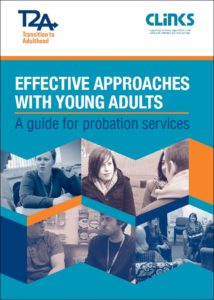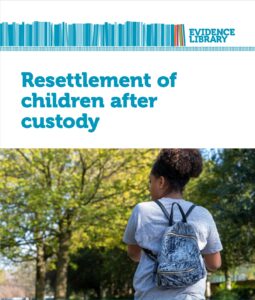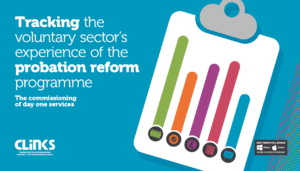Effective approaches with young adults
A new guide to effective approaches with young adult offenders has been published today (7 September 2015) by Clinks and Transition to Adulthood (T2A).
The guide, which is aimed at probation services (that is the National Probation Service and 21 Community Rehabilitation Companies) provides a range of practical suggestions on how practitioners can engage young adults, deliver a tailored and effective approach, and achieve improved outcomes. The guide is based the experiences of both practitioners and young adults themselves.
If the probation officer acts like they know it all, the less likely I’d be to say anything to them
[divider]
Young adults are different
Young adults are responsible for a disproportionately high volume of crime, and while those aged 18–25  make up only a tenth of the British population, they account for a third of prison admissions, and a third of the overall social and economic costs of crime. The early adult years are sometimes described as a ‘turning point’ during which processes are at work that will influence whether or not individuals continue to offend, or succeed in breaking away from a longer-term criminal career path.
make up only a tenth of the British population, they account for a third of prison admissions, and a third of the overall social and economic costs of crime. The early adult years are sometimes described as a ‘turning point’ during which processes are at work that will influence whether or not individuals continue to offend, or succeed in breaking away from a longer-term criminal career path.
A good probation officer provides support and shows empathy. They are willing to spend time to talk to you
It is for these reasons that there has been such considerable focus on this group in the last year. NOMS has recently published a review of the key research on helping young adult offenders and the Justice Committee is currently running an inquiry into the treatment of young adult offenders in the criminal justice system (get your views in by 30 September 2015).
A probation officer empowers you, helps you choose your path and provides an insight into the opportunities available
Young adults are the most likely age group to reoffend and breach their orders. In recent years there has been a growing recognition amongst professionals and policy makers in the justice system that the specific needs of young adults require a distinct approach. The practitioners interviewed for this guide said that because of the chaotic lives these young adults lead their work is often unpredictable, requiring them to adapt and respond on a daily basis. The report said that this made the flexibility of services and a person-centred approach absolutely vital to the success of any young adult project.
My probation officer was good because they had some leniency
[divider]
The challenge of working with young adult offenders
The guide contains a number of different sections:
- Practical suggestions to assist probation practitioners in their day-to-day work with this age group;
- Information on the specific issues facing young adults and how they impact on their engagement with probation, including maturity, trauma, health needs and the development of life skills;
- Guidance on how to tailor services to specific groups of young adults with particular needs such as women, Black, Asian and minority ethnic (BAME) young people, those with disabilities and care leavers;
- Views of young adults themselves on what they feel makes a good probation officer:
- Measures that managers and commissioners can take to enable effective engagement of young adults and adapt services where necessary;
- Examples of how different probation services have adapted their approaches for young adults.
They have to be a good talker and know how to have a laugh
The guide itself is well worth reading in full, but I thought the most interesting subject to focus on was the views of young adult offenders on what makes for a good probation officer, which are interspersed throughout this post.
“They show that they care and stick to their word”
[divider]
What do young adult offenders think best practice is?
The report does not include the views of young adult offenders on their probation officers, but, instead, asks them to describe their ideal offender manager.
One young person gave a detailed and useful opinion, which echoes the sorts of comments made to me when I have undertaken service user research:
[alert-success]”A good probation officer has to be able to work with different people and not be judgemental of me based on anything until they meet me. They have to show that they really believe I can stop offending and achieve better things. If they do, it will help me believe I can be different. My probation officer needs to show an honest care of my welfare and everything going on in my life. Showing a genuine interest in my life will help me feel like they are on my side because at first it just feels like they are part of the system like the rest”[/alert-success]
Perhaps the main challenge for probation staff working with young adult offenders in the new CRCs will be to have sufficient time to develop a trusting relationship which underpins the best probation practice.








